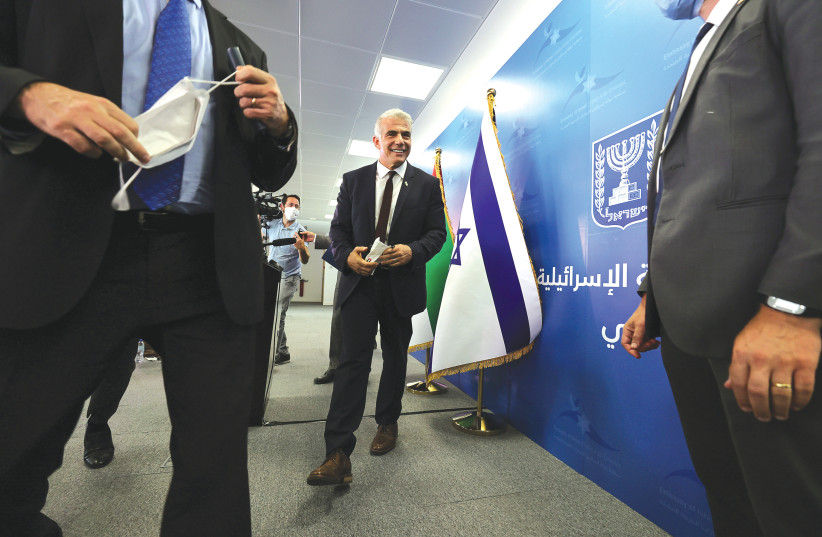The US withdrawal from Afghanistan was the right move but was carried out poorly, Foreign Minister Yair Lapid said on Wednesday, in the first sound of criticism from a senior Israeli official about the recent withdrawal.
“It was probably the right decision but wasn’t performed in the right manner,” Lapid told foreign reporters in Jerusalem.
“We don’t understand completely all the consequences of this move, of this retreat,” he added.
It could affect Pakistan and Iran’s long border with Afghanistan that is now run by a radical Sunni organization, Lapid said. He further speculated that it could “hugely” impact the battle with al-Qaeda.
“We should wait a little before we jump to conclusions about the aftermath of the US withdrawal,” Lapid said.

Lapid added that he does not believe that the US pullout from Afghanistan signals an American retreat from the region.
“I do not think that the US is retreating from the Middle East,” Lapid said.
Prime Minister Naftali Bennett discussed this matter with US President Joe Biden in Washington last week, Lapid noted, adding that he is also speaking about the matter with American officials, including Secretary of State Antony Blinken.
The US is seeing new avenues of influence in the region, Lapid said, adding that Biden was updating the US method of operation and replacing policies of past administrations.
“This administration is very keen on being on top of the current game, not the game that was played before,” Lapid said.
Lapid said the two main challenges facing Israel in the region are from Iran and its proxy group in Lebanon, Hezbollah.
Israel and the US are at odds over Biden’s push to rejoin the 2015 Joint Comprehensive Plan of Action, known as the Iran nuclear deal, which the Trump administration exited in 2018.
Indirect talks brokered by the EU in Vienna have stalled, and there is no date for their resumption.
“Right now it seems like the agreement is not going anywhere and the talks are not going anywhere,” Lapid said.
“The world needs a plan B, and Iran needs to know there is a credible threat on it if they will keep on advancing their nuclear program as they do now,” Lapid said.
With regard to Lebanon’s financial crisis, Lapid said Israel is ready to offer humanitarian assistance despite the lack of diplomatic relations between the two nations.
Lebanon “has transferred from a country with a terror organization to a terror organization with a country,” Lapid said. “Hezbollah is the largest terror organization in the world. This is one of the reasons the collapse of Lebanon worries us a lot.”
Reuters contributed to this report.
